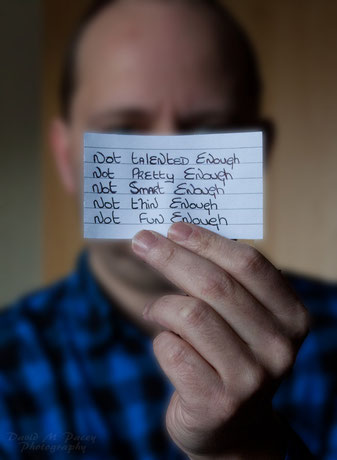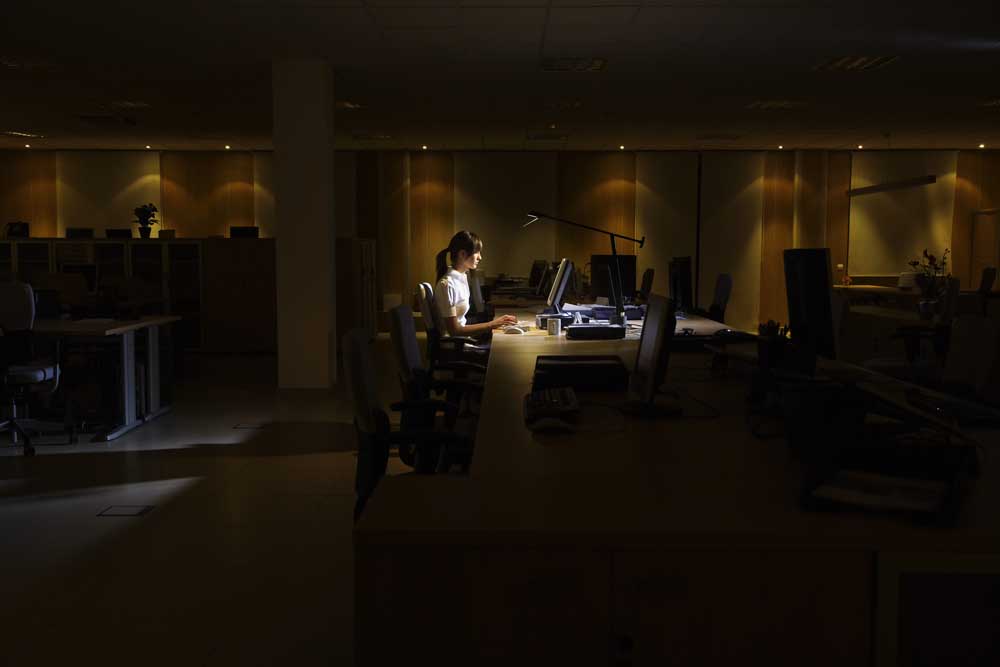No Results Found
The page you requested could not be found. Try refining your search, or use the navigation above to locate the post.

“Ahh, the good ol’ days.” How often have we heard or uttered this familiar phrase? It can be a source of great pleasure and amusement to reminisce on a time when we were younger, remembering a special event or activity.
We tend to look at our past experiences through a filter that magnifies the positive while diminishing the negative. While there’s no harm in basking in a memory, it can be harmful if you spend so much time looking at your past, that you neglect your present and future.
If you’re someone who spends too much time thinking about the “glory days” of your youth, you might think it’s because your life has become dull and monotonous. With the carefree days of your youth behind you, you might long to be back in that time period to escape your present. But if you take a closer look and examine your life, you may be surprised to notice that you look back not because your past was so great, but rather because your present is not.
The more time you spend reminiscing, the worse your current life becomes, neglected by daydreaming of the past instead of imagining new heights to which you can aspire.
Get Rid of Unneeded Memorabilia
Sometimes a memento is a special memory of a special time, and sometimes it’s just an object that’s imprisoning you in your past. Getting rid of an excess of items associated with the past will help you stop living in days gone by, and free you to live in and enjoy the present.
Fully Appreciate Each Day
As Eleanor Roosevelt once said, “The purpose of life is to live it, to taste experience to the utmost, to reach out eagerly and without fear for newer and richer experience.” One way to stop living in the past is to enjoy and appreciate each day. Start keeping a journal and jot down three things you’re grateful for each day. Take a walk, or cook a special meal. Enjoy the sights, sounds and smells of every day.
Make Future Plans
Nothing can keep you from looking to the past quite like looking to the future. Plan a vacation or create a goal you want to reach in the near and distant future. Maybe you want to learn a new language, start playing the piano, or read all the classic novels. There’s a lot of life waiting to be lived, so make the most of it.
While there’s certainly nothing wrong with a moment of nostalgia, it’s important to live in the present, and spend your time enjoying your life as you live it. If you make the effort to create a better life for yourself today and in the future, you’ll not only bring yourself great happiness and satisfaction, but you’ll create many more memories to relish in the days to come.
If you’re struggling and looking for support and guidance to create a better, more satisfying life, a licensed professional can help. Call our office today and let’s schedule a time to talk.
The page you requested could not be found. Try refining your search, or use the navigation above to locate the post.

Until quite recently, people were uncomfortable discussing therapy because of the stigma attached by our society. As a result, there are still some fairly big misconceptions about it. Here are 3 of the most common misconceptions about therapy to help you feel more comfortable and hopefully, take that step to seek treatment.
It’s Just Like Talking to Your Friend
While friends are there to listen and support you, they are not equipped to offer real solutions to your problems. Therapists, on the other hand, are uniquely qualified to help you by offering more than just good advice.
Therapists have trained to have a deeper understanding of human nature. They can help you recognize your own behavioral patterns as well as offer tools to make necessary adjustments. They can also help you to gain a fresh perspective on the events of your life and the choices you’ve made.
And finally, we don’t always want our friends or family to know what’s going on in our lives. Because therapy is confidential and because your therapist’s only vested interest in you is helping you improve yourself and overcome your challenges, it is generally easier talking openly with them. Only by being totally honest and transparent about your life and yourself can you hope to create lasting change.
Therapy is All About Dredging Up the Past
Many people assume therapy consists of spending 45 minutes each week, laying on a couch, talking about their childhood. You can thank Frazier Crane and Sigmund Freud for those stereotypes! In reality, therapy isn’t all about the past. Counselors care about how you are doing present-day and what your goals are for the future. Every counselor has a theoretical approach to therapy (Cognitive-Behavioral Therapy, Psychodynamic, Solution-Focused, Acceptance and Commitment Therapy, Jungian, etc.), and each approach has a unique perspective on the role of the past in therapy. Counselors that adopt a solution-focused approach don’t care about the past much at all!
How does the past come to play, then?
First, therapists do have to look at a client’s history to get a clear picture of their experiences and patterns. While many people who are new to therapy may not want to spend any time “wallowing in the past,” they must understand that the first phase of therapy is to gather information. A therapist must ask some questions about their new client’s life history in order to truly understand him or her. Past experiences do have a way of shaping our personalities and our beliefs about ourselves and the world around us.
Secondly, significant life events from the past may be worth processing, but only if it’s something both you and your therapist both agree would be beneficial. Some clients specifically seek out therapists with a trauma specialty for the explicit purpose of healing past wounds. Even then, processing past events is meant to improve your life as it exists today. Clients are taught a variety of coping skills to alleviate any anxiety or triggering that may occur when discussing sensitive events from the past.
You’ll Start to Feel Better Immediately
Many people new to therapy make the mistake of quitting when they don’t feel better after one or two sessions. The truth is, it will take one or two sessions just to tell your story and develop a sense of trust. Therapy shouldn’t be thought of as a quick fix but a process that is unique to each individual. And, it is important to understand that the process won’t always feel good, though it will be completely worthwhile in the end.
If you or a loved one is interested in exploring counseling, please contact us today. We have a counselor that might be able to help!

Have you ever felt like someone is playing tug-of-war with you, except you are the rope? Being pulled in too many directions can be exhausting, and if it happens over an extended length of time, it can lead to extreme anxiety or burnout. If...

It’s nearly New Year’s. This marks yet another year that we tell ourselves that it’s time to reset, refocus, and re-envision our lives the way they were “meant” to be—the way they “should” be. It’s time to get healthier, work harder (or slower), and match real life...

Do your inner thoughts ever sound like a cruel Reality TV critic (Simon Cowell, Gordon Ramsay, etc.)? For example, do you… Replay your blunders over and over like a Blooper clip on repeat, except you don’t find it funny? Beat yourself up for saying the “wrong” thing?...

One of the things most of us are taught as children is to never judge others. “Don’t judge a book by its cover!” And yet, despite our best efforts, many of us fall into the trap over and over again. Why do we do it?
Here are four common reasons that explain this particularly bad habit of judging other people.
It Lets Us Feel Superior
Tearing other people down is one way people prop themselves up. By judging others harshly, we compare ourselves to them and find ourselves superior. Compared to their life or their behavior, we look pretty good! But this kind of comparison is false and unhealthy. Instead of finding faults in others, we would do much better to focus on how we can become our best selves.
It Helps Us Recognize Our Goals
Judging is a way for us to perceive the world and figure out where exactly we fit in. When we form opinions of others, we are able to recognize what we like and aspire to be, as well as what we don’t like and want to avoid.
It Uncovers Our Own Faults
More often than not, we are bothered by the qualities in others that we choose not to see in ourselves. We rail against another’s habits, appearance or lifestyle choices because they are the very ones we dislike in ourselves.
It Makes Us Feel Part of a Group
Occasionally, judging can make us feel part of a club. Let’s say there is a work situation where one person complains about something, and then another person agrees, and then another and another. Before you know it, a group has formed around negativity. Sometimes this negativity can be funny and based around a silly situation, but often the negativity can be at the expense of another.
How to Break the Judgement Habit
If you’ve recognized your tendency toward judgement, here are a few tips to break the habit:
If you discover you have a tendency to judge others based on your own low self-esteem, it may help to speak with a therapist who can help you uncover the reasons behind it and offer coping strategies.
If you or someone you know is interested in exploring treatment, please get in touch with us. One of our counselors would be happy to discuss how we may be able to help.

Imagine for a moment that the negative thoughts running wild in your brain played like a country song on repeat. Would any of the songs have titles like these? “She Don’t Think My Beard Is Sexy” “All Alone Again (In My Truck)” “My Guitar Only Has Three Strings”...

Automatic negative thoughts are a natural part of the human experience. For the most part, we don’t conjure them up or think them on purpose. They happen instinctively. Negative thoughts get directed toward ourselves (“I can’t believe I’m running late again today!...

“You either walk inside your story and own it or you stand outside your story and hustle for your worthiness.” “The hardest challenge is to be yourself in a world where everyone is trying to make you be somebody else.” “The most beautiful people we have known...

Star Meadow Counseling is proud to help sponsor the 2017 Out of Darkness Community Walk. We have seen the impact that suicide can have on friends and family and are committed to spreading a message of hope to those that are suffering. Every 40 seconds someone in the...

Teen depression can bring an array of emotions and behaviors that parents struggle to understand. An urge to isolate, to experience intense feelings alone Difficulty maintaining motivation with chores or homework Disinterest in usual hobbies or interests An opposite...

For their teens to succeed as adults, many parents (and teens) think they must be involved in numerous extracurricular activities. Perhaps we believe this abundance of activities will foster a sense of pride and accomplishment. Perhaps parents are hoping to keep teens out of trouble. For many teens, there is a strong sense of pressure to impress colleges with a robust resume. But is this excessive involvement in activities doing more harm than good?
According to a study published in the journal “Sport, Education, and Society,” the social demands of an extracurricular-heavy schedule are not only placing an unprecedented strain on families, but also potentially harming healthy development and well-being.
The researchers interviewed 50 families of primary-aged children and found that 88% of the kids were involved in extracurricular activities four to five days a week. These activities were the central focus of family life, especially in households with more than one child. As a consequence, families were spending less quality time together and children were exhausted.
The researchers from the journal “Sport, Education, and Society” were quick to warn parents of the potential negative impact of an over-stuffed school schedule: “Raising awareness of this issue can help those parents who feel under pressure to invest in their children’s organized activities, and are concerned with the impact of such activities on their family, to have the confidence to plan a less hectic schedule for their children.”
In order for extracurricular activities to do more good than harm, teens have to make sure self-care and time with friends/family are prioritized. Here are some ways you can help your teen find a balance:
Nowadays, teens and adults can find themselves juggling way too many responsibilities. It’s important for all of us to slow down, relax, and examine our priorities. If you or your teen are struggling with overcommitment, a counselor on our team might be available to help.
Sources:
https://www.psychologytoday.com/us/articles/200301/are-we-pushing-our-kids-too-hard

Life is challenging when you’re an introvert. What are simple interactions for many people can feel anxious and uncomfortable to you. The mere idea of taking part in certain social events can be exhausting and emotionally draining to an introvert.
While some social functions, such as business meetings, cannot be missed, there are social gatherings that can be, and it is totally okay for you to say no. This may feel almost as uncomfortable to you as actually attending the party or event, but it’s important to put your own needs ahead of others in times like these.
If you are an introvert that generally has a hard time saying no to invites, here are some ways you can do it kindly:
We tend to feel a lot of pressure to give myriad details on why we can’t accept an invite to an event. If we don’t have a “good enough” excuse, some of us will blatantly lie, which then makes us feel bad.
There is no need to lie and no need to give more details than necessary. You can simply say, “Thanks so much but I already have plans.” We all have plans all of the time. You may plan on doing the laundry that night or watching Game of Thrones while eating pistachio ice cream (which is a great plan, BTW). That is the truth but it is no one else’s business but yours.
Before saying “no,” be gracious and thank the person very much for inviting you in the first place. It will make the other person feel good that they made you feel good by thinking of you.
It’s easy to say no in a text or email, but when you will see that person in person, saying no can feel incredibly awkward. The best thing to do is just practice saying, “Thank you so much for asking but I already have plans that day/evening,” so that it comes out naturally and so that you feel at ease saying it.
I would like to suggest that, before saying no to an invite, you really weigh the pros and cons. I know being introverted can be challenging, but I also know that it can get pretty lonely at times. Saying yes once in a while may not be as bad as you think. While saying no to a huge, loud party may make sense for you, be open-minded and look for those new social situations you actually might be able to handle and enjoy. You never know the kind of fun you could have or new friends you could make.
Introverts tend to feel exhausted after social interactions, but so do people with social anxiety symptoms.
How can you tell the difference between the two? Be curious about why you’re avoiding social interaction.
A person can be an introvert AND have social anxiety. A therapist can help you honor your introversion needs, while working to overcome social fears.

Have you ever wondered what's happening in your body when anxiety and stress are triggered? Stress and Anxiety are "fight or flight" responses, which allow us to react faster and more appropriately, depending on the situation. These have been incorporated in us...

Anxiety and panic attacks are uncomfortable. Sometimes anxiety is so physically uncomfortable that people experience heart palpitations, nausea, chest pain, dizziness, difficulty breathing, or faintness. Sometimes anxiety symptoms worry someone so much that they call...

There are a lot of terms floating around the online world out there and it can be difficult to determine which ones to trust as the real deal and which ones are simply trigger words or click bait. One of the up-and-coming ones is mindfulness. As more and more...

— WORKAHOLICS ANONYMOUS MEMBER Workaholism is described by some as the “respectable addiction,” though its affects can be destructive and even deadly to those who are compulsively addicted to work. How can you tell if you are a workaholic? How do we distinguish...

Are you interested in learning more about Cognitive-Behavioral Therapy as a mode of counseling or self-help? Check out these 7 amazing online resources: https://llttf.com/ Living Life to the Full Living Life to the Full is an interactive CBT website. This free...